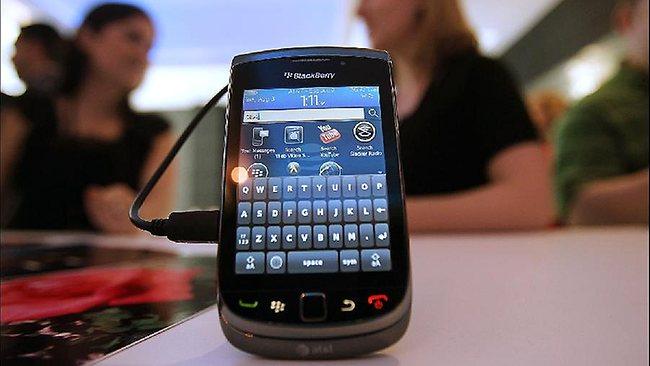Is your smartphone making you sick?
KEEP your flash new mobile in your pocket and you risk serious harm, BlackBerry has admitted.

KEEP your flash new mobile phone in your pocket and you risk "serious harm", according to the maker of the BlackBerry, while Apple admits its iPhone can exceed exposure guidelines.
There is rapidly-growing demand for information about the health effects of radio frequency energy - so much so that early next year Australia's largest mobile retailer Telstra will publish comparison data on mobiles' "specific absorption rate".
Consumers for the first time will be able to analyse phone SAR side by side. The regulator, the Australian Communications and Media Authority (ACMA), does not produce such information. In fact, phone manuals often do not even disclose the Australian standard for SAR.
However, manuals do contain some disturbing admissions in their fine print. The user guide to the BlackBerry Torch advises using its "approved holster with an integrated belt clip or maintain a distance" of 25mm between the "BlackBerry device and your body while the BlackBerry device is transmitting".
"Use of body-worn accessories, other than RIM-approved holsters with an integrated belt clip, might cause your BlackBerry device to exceed radio frequency (RF) exposure standards. The long-term effects of exceeding RF exposure standards might present a risk of serious harm."
And the Apple iPhone 4 guide says: "iPhone's SAR measurement may exceed [US] . . . exposure guidelines for body-worn operation if positioned less than 15mm from the body (eg, when carrying iPhone in your pocket)."
The BlackBerry's maker, Research in Motion, did not respond to requests for comment. Apple would not comment on exposure levels for "body-worn operation". But Telstra's electromagnetic energy co-ordinator Mike Wood said: "Technically speaking, under the worst-case scenario, you might be in breach of the SAR limit."
Still, the phones were safe, Mr Wood said.
ACMA said it didn't set the exposure limits. The Australian Radiation Protection and Nuclear Safety Agency, which sets the limit, did not return calls. The Australian SAR limit for mobiles is 2 watts per kilogram of tissue, higher than the 1.6W/kg in the US.
Australian Centre for RF Bioeffects Research executive director, University of Wollongong Professor Rodney Croft, said: "Even if it is over the limit there is no evidence . . . that it would cause harm unless it was at least 50 times the limit."
